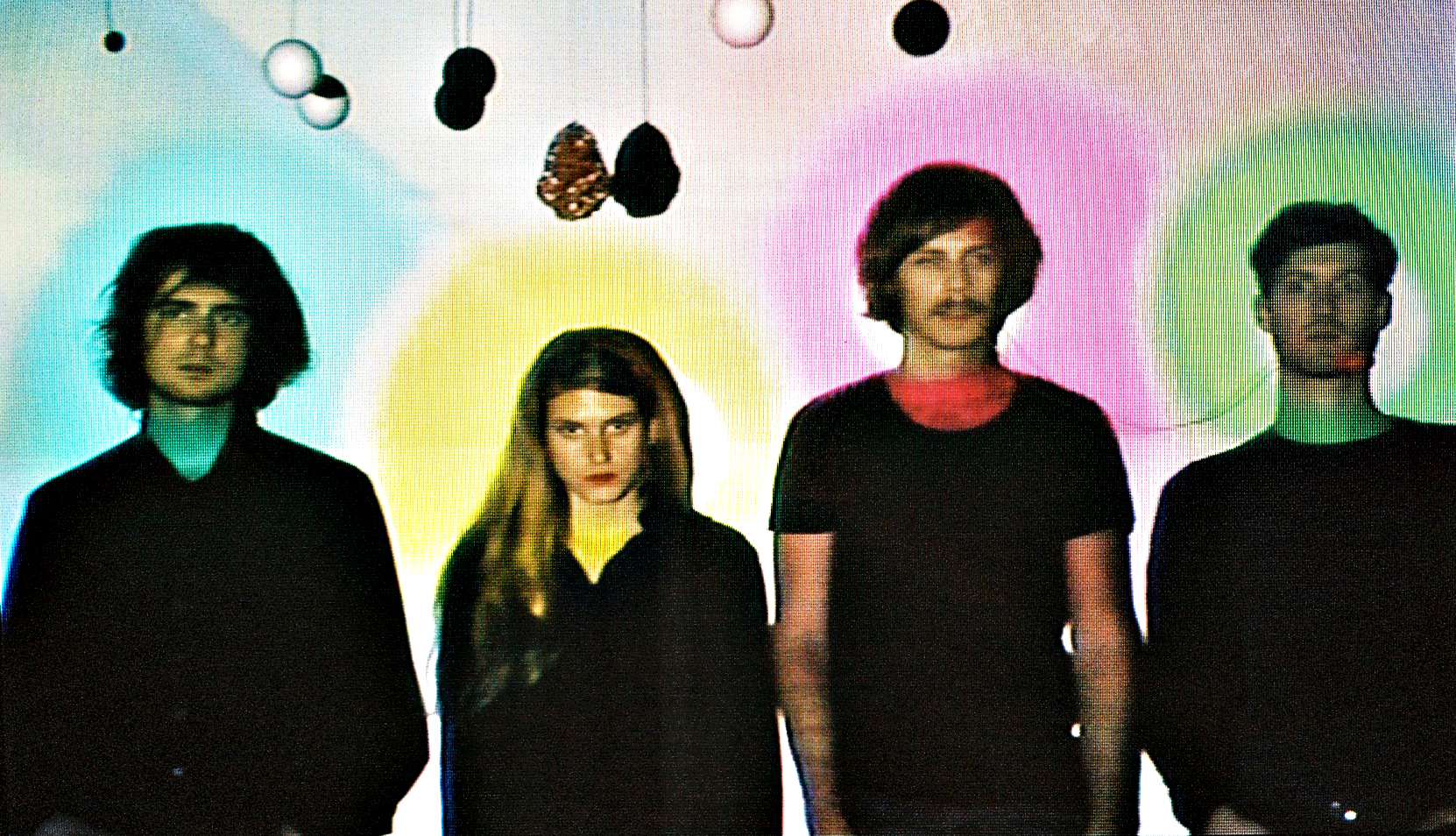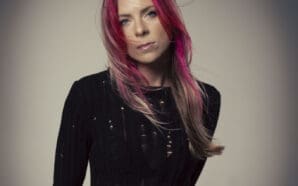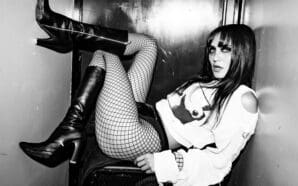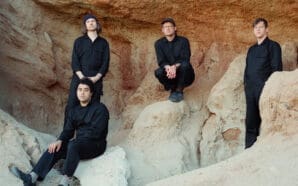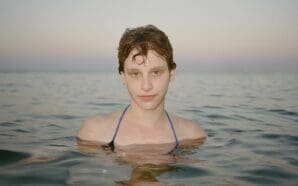NY/Berlin quartet Fenster have apparently been through even more than I realized between the release of their 2012 debut, Bones, and their follow-up, The Pink Caves, which is out today on Morr music. The hyper-mystical, hyper-moody, and hyper-postmodern indie pop outfit kick off a string of US dates tonight at Shea Stadium in New York and will be at our own Johnny Brenda’s this Wednesday, March 5th. Just before beginning this excursion they took some time to tell me about how they’ve spent the past two years and how they plan to spend the rest of 2014.
Izzy Cihak: You’re about to release your sophomore LP, The Pink Caves. How do feel like it compares to your debut, Bones, both sonically and in terms of the writing and recording process? Is there any significant difference in the Fenster that recorded Bones and Fenster as it currently exists?
Fenster: Bones was our first record, made in a state of pure naive bliss. We had never played a show before and it came from a world that was really all in our heads. I guess it was a record that really reflected that time, the influences we had gathered as individuals and the special chemistry between us and our producer. It was very much a winter record and very much a Berlin record for us. It was made in a basement and recorded with one old Russian ribbon microphone. We wanted to capture the simplicity and dark playfulness of morbid dreams, coupled with the sounds of the city and the sounds of objects we found that inspired us, like shovels and slamming doors. After that record came out and we started touring a lot, our world sort of exploded. Everything we thought we knew was kind of turned upside down and we encountered so many extremes. We were exposed to so many new places and people and music and we just took it all in, I guess, whether it was conscious or subconscious I think the world changed and shaped us all as people and as musicians. When we decided to take a break from touring and compose and record a new album, we found that the influences and instruments we had been inspired by simply changed and instead of trying to recapture that minimal innocence, we embraced this new world we felt emerging, following the different aesthetics we were drawn to, which were maybe more psychedelic and wobbly than before.
Izzy: And what have been the highlights of the band, so far? You’ve been through kind of a whole lot in a relatively short period of time.
Fenster: Wow, I guess there are uncountable highlights when you’re on the road but it’s strange that the things that really stick out are the moments of crisis when the group is challenged with obstacles and disasters. On our first long European tour we got totally robbed in Amsterdam and then a week later our beloved first car burned down in Italy. I guess it really freaked us out but also brought us closer together. Our first tour was pure adventure, as it was mostly self organized so we were really at the mercy of the world – playing in a truck and sleeping on a converted houseboat one night, playing in a stinky basement and sleeping in a pile of broken glass the next. All those first impressions of touring are really precious. But playing at a festival in Holland and having a fully equipped water park in the hotel was pretty nice, too. I think as a band and as people we really try to keep high expectations out of the equation and then no matter what happens we’re always pleasantly surprised to see what comes next.
Izzy: I’m quite curious as to The Pink Caves’ most significant influences. I understand that the house that it was recorded in actually served as a huge inspiration (and even “instrument”).
Fenster: That’s true, the house definitely shaped the record. It was the end of an endless winter and we were all exhausted by it when we arrived at the house. In the first week and a half of April there were still thick layers of snow on the ground and oppressive grey skies dominating the mood. The house had also run out of fuel for the heating system, so everything revolved around the fireplace at first. It was a very heavy beginning but then spring eventually came and by the end of the recordings we could sit outside in the sunshine. Our producer Tadklimp and RĂ©mi basically set up a home studio and cabled the whole house so that we could all record at the same time in different rooms. We also made lots of field recordings in and around the house of all the noises we could find, like the water in the well, bells, random objects we found, animals, chainsaws, etc. We are all big movie nerds and big David Lynch fans as well…Â Twin Peaks, both in terms of its aesthetics and soundtrack definitely made its way into our subconscious and through some tunnels into The Pink Caves.
Izzy: I also understand that utopias/dystopias factored significantly into your latest batch of songs so, as a humanities professor that actually teaches Thomas More, I’m curious: Do you have any particular favorite utopian/dystopian works of art?
Fenster: The title of the record was one of the first things that emerged when we started imagining what this record could be. We’re generally really fascinated by cults and religious fanaticism and “the Pink Caves” was a term used by a little boy in a documentary we saw about the Westboro Baptist church. He said that he looked on the internet and found this place where the good Christians go after they die and it’s called The Pink Caves. Somehow this made a strong impression on us. The song “The Light” is maybe the most direct narrative that reflects this theme, as it’s spoken from the perspective of a cult leader. Utopia and Dystopia in science-fiction and post-apocalyptic visions, both in literature and film are also really rad. For us Science-fiction as a genre allows a certain mixture of high philosophy, trashy aesthetics, and poignant reflections of whatever time in which it is created in, as nightmare visions of the future are essentially nightmare visions of the present. Some favorite geniuses in various mediums are J.G. Ballard, Cronenberg, Phillip K. Dick, Bruegel, and Henry Darger. Also some great film scores that come to mind are Blade Runner by Vangelis or Jerry Goldsmith’s score for Alien.
[youtube http://youtu.be/gMBGWfmTeYY]
Izzy: You have an upcoming string of live dates in the US. What can we expect of the live experience?
Fenster: You can expect to see four humans on a stage playing instruments, turning knobs and banging on stuff. Generally the live experience is a mix of slow, echoey tension rising and more explosive dynamic songs. We still swap instruments with each other throughout the set and we’re letting ourselves go into more moments of improvisation than before.
Izzy: How do you hope or plan to spend the rest of 2014? Is there anything you’re especially excited about?
Fenster: We’re gonna spend a lot of this year on tour in the US and Europe. We’re excited to be playing new stuff and seeing new places, as well as re-visiting places we’ve already been to and love. But apart from that we’re looking forward to being nostalgic about everything one day. Thanks.
